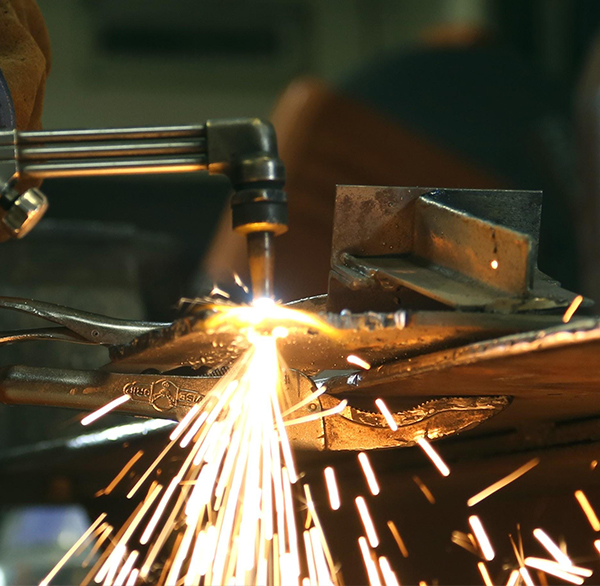Industry Knowledge Extension
Brass is an alloy composed of copper and zinc, and sometimes other elements such as lead, tin, manganese, nickel, or iron are added to produce different properties. The proportion of copper and zinc can vary, resulting in different types of brass with different characteristics.
Here are some common types of brass and their characteristics:
Alpha brass: contains 65% copper and 35% zinc, and is the most ductile type of brass. It is often used for decorative purposes, as well as in electrical and plumbing applications.
Beta brass: contains 60-70% copper and 30-40% zinc, and has good corrosion resistance. It is often used in marine applications, as well as in manufacturing of valves and pumps.
Cartridge brass: contains 70% copper and 30% zinc, and is commonly used in the production of cartridge cases, bullet jackets, and other ammunition components.
Naval brass: contains 60% copper, 39.2% zinc, and 0.8% tin, and is resistant to corrosion in seawater. It is often used in marine applications, such as propellers and piping systems.
Red brass: contains 85% copper, 5% zinc, 5% lead, and 5% tin, and has good resistance to corrosion and wear. It is commonly used in valve components, bearings, and other applications that require durability and resistance to friction.
White brass: contains copper, zinc, and nickel, and has a silver-like appearance. It is often used for decorative purposes, such as in jewelry and musical instruments.
Low brass: contains 80% copper and 20% zinc, and has a lower melting point than other types of brass. It is often used in the production of musical instruments, such as trumpets and trombones.
Brass alloy materials play an important role in various industries and applications due to their unique properties and characteristics. Here are some of the roles and applications of brass alloy materials:
Manufacturing: Brass is commonly used in manufacturing due to its excellent machinability and workability. It can be easily formed, cut, and shaped into various products, including screws, nuts, bolts, and other fasteners.
Electrical and electronic components: Brass alloys are often used in electrical and electronic components due to their excellent conductivity and resistance to corrosion. They are commonly used in switches, connectors, and terminals.
Plumbing and HVAC systems: Brass is commonly used in plumbing and HVAC systems due to its excellent corrosion resistance and durability. It is often used in fittings, valves, and pumps.
Marine and naval applications: Brass alloys are often used in marine and naval applications due to their excellent corrosion resistance and durability in saltwater environments. They are commonly used in propellers, shafts, and other components.
Musical instruments: Brass alloys are commonly used in the production of musical instruments, including trumpets, trombones, and other brass instruments. Brass provides a unique tonal quality and is easy to work with to produce precise and intricate parts.
Decorative applications: Brass is often used for decorative applications due to its beautiful appearance, durability, and ease of polishing. It is commonly used in home decor, furniture, and jewelry.
Overall, brass alloys play a vital role in various industries and applications due to their unique properties, versatility, and durability.
 View More
View More
 View More
View More
 View More
View More
 View More
View More
